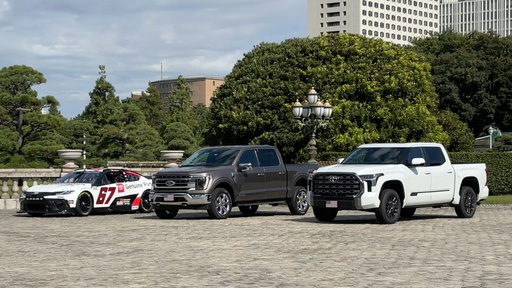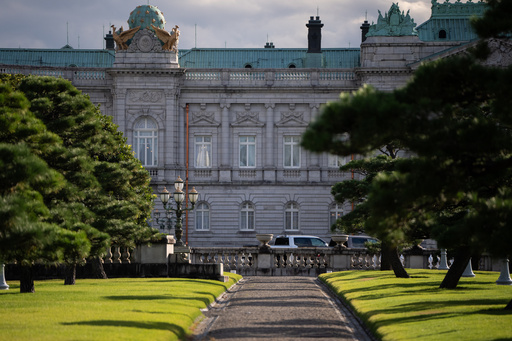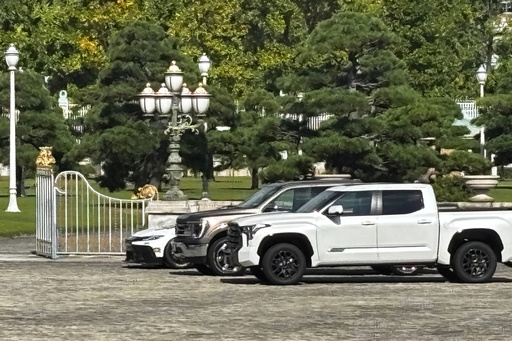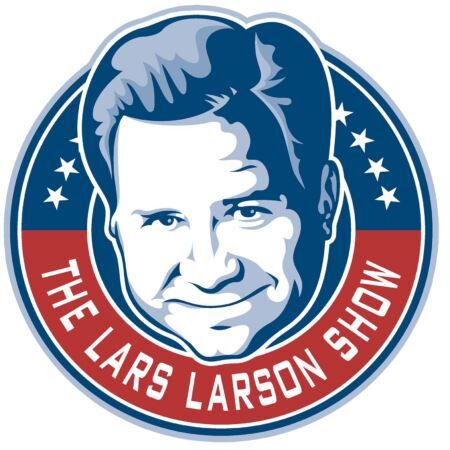Ford's enormous F-150 becomes unlikely part of Japan's efforts to woo Trump
News > Business News

Audio By Carbonatix
12:49 AM on Tuesday, October 28
By MARI YAMAGUCHI
TOKYO (AP) — Japan is filled with tiny white trucks that farmers and commercial workers use to lug their gear along the narrow roads of a nation smaller than California.
But Japanese Prime Minister Sanae Takaichi had another, more substantial truck in mind as she looked to build rapport with visiting U.S. President Donald Trump.
Takaichi, who wants to improve economic ties with Washington and cement a strong relationship with Trump, placed an enormous American Ford F-150 truck, as well as U.S.-made Japanese automobiles, in the courtyard of the Akasaka Palace where the leaders held their first talks Tuesday.
Trump is a fan of the Ford F-150 and has responded positively to reports that the Japanese government is considering buying dozens of the pickups.
He has also complained that there are hardly any American cars in Japan and that the country's vehicle safety standards are too strict.
But the lack of big American automobiles in Japan might be linked to more practical reasons, including local tastes and the conditions and size of roads.
Japan is an island nation, smaller than California, and there is limited parking. Even in big cities, many of the streets where people live are narrow and twisting.
Consumers seem to prefer compact or mini cars that can easily navigate the roads. Those who can afford more expensive foreign cars tend to go for compact or medium-size vehicles from Europe, such as Mercedes-Benz, BMW, Volkswagen and Audi.
Except for American-produced Japanese cars such as Honda, Mazda and Nissan, the top-selling American brand is Jeep, according to the Japan Automobile Importers Association.
Many American cars have their steering on the left side, the opposite of the standard right-side steering in Japan, where expressway tolls are on the right side, for instance. Lower mileage and lack of maintenance and service networks also help explain why American brands except for Jeep have struggled in Japan.
“Why don't American cars sell well in Japan? Because they lack understanding for road conditions and housing situations, as well as energy conservation,” former Prime Minister Shigeru Ishiba told parliament in April.
When Trump heard of the Ford truck idea as he flew to Asia on Air Force One, he reacted enthusiastically.
“She has good taste,” Trump told reporters of Takaichi. “That’s a hot truck.”
The underlying context is Takaichi's need to figure out how to navigate the complex trade relationship that Trump shook up earlier this year with tariffs.
Trump wants allies to buy more American goods and also make financial commitments to build factories and energy infrastructure in the United States.
Japan’s previous administration agreed in September to invest $550 billion in the U.S., which led Trump to trim a threatened 25% tariff on Japanese goods to 15%. But Japan wants the investments to favor Japanese vendors and contractors.
In Japan, sport utility vehicles and are becoming popular among people with families and for outdoor activities such as camping, but buyers often go for more stylish, smaller models.
Ford Motor Co. and Chrysler withdrew from the Japanese market because of slumping sales, Ford in 2016 and Chrysler in 2017.










